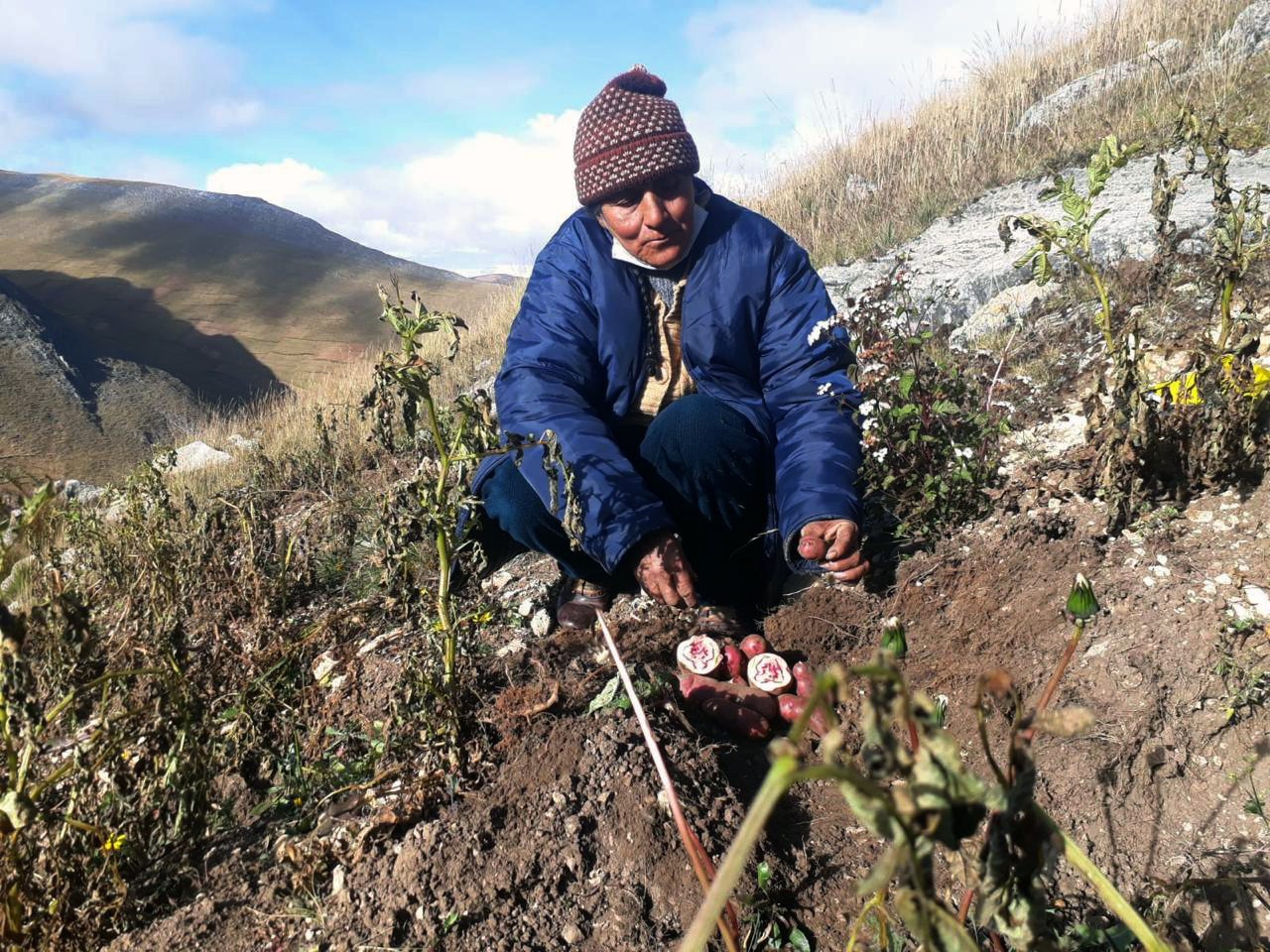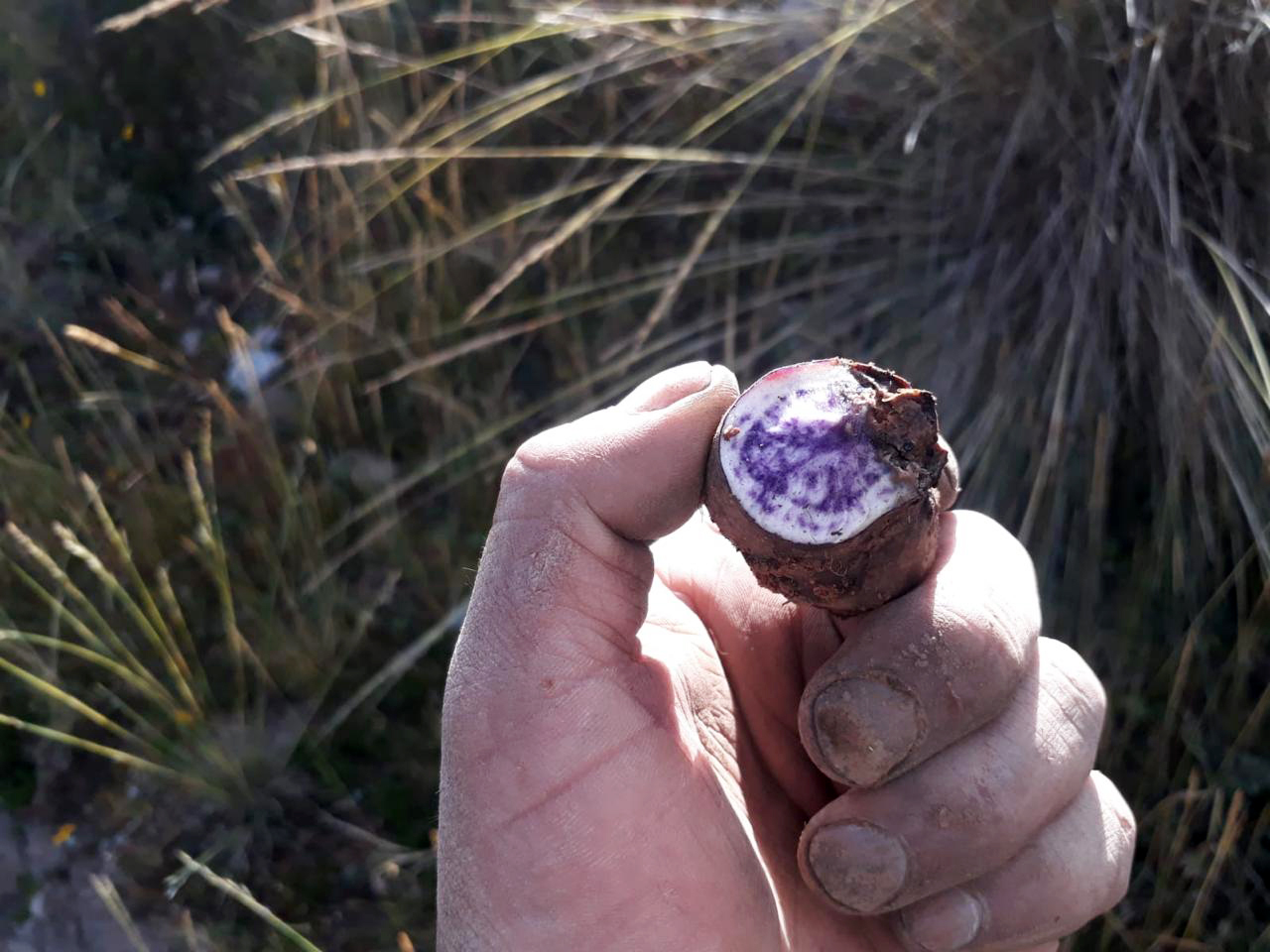FAO's Hand-in-Hand Initiative in Peru: forging partnerships between farmers and companies in need of agriculture products

23.08.2024
In the high Andean regions of Peru, FAO’s Hand-in-Hand (HIH) Initiative supported six producer organizations from Huancavelica, Junín and Cajamarca in their participation at the Agrofest 2024, organized by Association of Agricultural Producers Guild of Peru (AGAP). These organizations, specializing in avocado, potato, coffee and cocoa production, attracted interest from around 30 buyer companies and arranged approximately 45 business meetings. As a result, they secured commercial agreements valued at USD 393 553 with completion expected within 3 to 12 months.
Meanwhile, 142 smallholder farmers from Huancavelica and Junín have formed a social enterprise dedicated to agroecological food production. Carmen Marca Maquera, General Manager of the Intirun Pachata Micuchisun Cooperative (INPAMI), shares how the organization has strengthened its commitment to agroecological farming for healthier nutrition.
Carmen Marca, a food industry engineer, was recruited by the cooperative to manage its operations. Despite living in Huancayo, the capital of Junín, she travels over 195 kilometers daily to visit farming communities. “I leave home at dawn to visit communities in Junín and Huancavelica with our clients who inspect the quality of our production. It takes 4 hours by bus to reach Huancavelica, where farmers grow beans, avocados, olluco, peas, and fava beans. In other areas, the key product is native colorful potatoes,” Carmen explains, smiling as she returns with fresh produce for her family.
Since 2014, farmers have been part of the Intirun Pachata Micuchisun Cooperative to secure fair prices for Andean products and reduce the influence of intermediaries. While non-member farmers receive approximately USD 0.27 per kilo of potatoes, INPAMI members earn around USD 0.50, benefiting from guaranteed markets.
“Since 2019, we’ve been supplying fresh products to the State, regional, and local governments, and were among the first to deliver agroecological products to the National School Food Program Qaliwarma, serving 16 educational centers. In 2022, we obtained the Family Agriculture Seal,” Carmen Marca notes. She credits their success to collaboration with the Ministry of Development and Social Inclusion (MIDIS) and the Ministry of Agrarian Development and Irrigation (MIDAGRI).
Selected by FAO’s Hand-in-Hand Initiative for its solid organizational foundations and suitable legal and financial conditions, INPAMI participated in the National Investment Forum which took place as part of the third edition of the Agrofest 2024 on 12 and 13 June, both virtually and in person.
“Thanks to FAO and the HIH Initiative, we connected with 14 suppliers interested in our native colorful potatoes and processed products, such as pigmented potato flour for export to European and Latin American markets,” Carmen Marca says with enthusiasm.
Intirun Pachata Micuchisun, meaning “Feeding the World” in Quechua, is dedicated to promoting agroecological farming for healthy food. “With FAO’s support, we are finalizing contracts with national and international exporters for 80 tons of native potatoes and 60 tons of avocados. This will boost the economies of vulnerable and poor farmers,” she emphasizes.
FAO supports Peru in eliminating hunger and malnutrition, eradicating poverty, and fostering inclusive socioeconomic development, benefiting 2 million smallholder farmers essential to addressing the global food crisis.

Hand-in-Hand Investment Forum 2024
For the third edition of the Hand-in-Hand Investment Forum 2024, which will take place in October in Rome, Peru is preparing investment proposals centered on four key value chains: high-altitude avocados, native potatoes, Andean grains, and South American camelids. These investments, totaling USD 163 678 451, are expected to directly benefit over 24 000 producers and indirectly impact an additional 92 000. The plan is committed to environmental standards and aims to reduce greenhouse gas emissions associated with the promoted activities.

